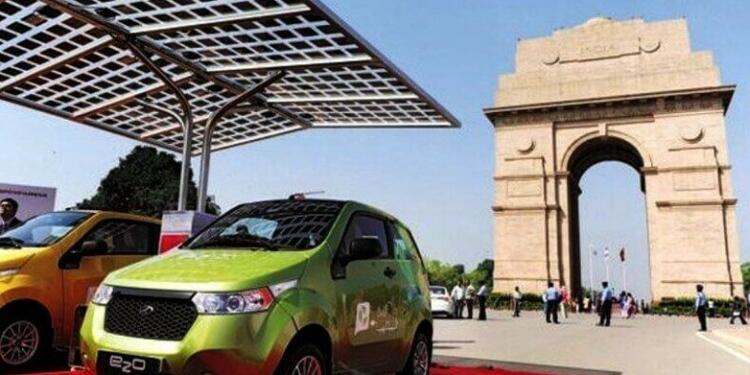Presently, our cars and public transport consume way too much oil or natural gas and they also release toxins that damage the environment and contribute to climate change. So, the world is looking at electric vehicles (EVs) as its solution. However, there are many challenges that lie ahead for the EV sector.
Charging problems
Charging an EV is a pain. Charging the battery of an EV can take hours. Consider this, Tesla’s fast chargers with 120 kW take thirty minutes to charge 80% of a battery. Not everyone can own a Tesla and other electric automobiles might take even more time to charge.
Since we are on the subject of charging, we ought to understand that charging the EVs won’t be an easy task either. A huge infrastructure in the form of charging stations will have to be built in the country in order to make travelling by EV practicable in the first place.
Unaffordable price range
Another problem is the price range of electric vehicles. The electric versions of the Tata Tigor and Tata Nexon are the only India-made EVs that can be afforded by the government. Moreover, only one of them meets the requirements of the government currently.
Mahua Acharya, managing director of Convergence Energy Services Ltd (CESL), the state-run company that deals with the EVs for central and state government departments, stated, “The government would want to see a choice of models before floating a tender.”
“We want to induct more (electric) cars because governments (state and central) are changing their fleet. There is only one car in the range that is generally affordable by government, and this one too has a waiting period,” she added.
Safety concerns
In the last few days, the incidents of battery fires and explosions have caught considerable media attention. Big automakers are facing the challenge as car companies lower the costs of batteries and also address issues around EVs’ safety considerations. Serial fire incidents involving Okinawa Autotech, Ola S1 Pro and Pure EV within a week have prompted the government and EV makers to turn into damage control mode. The four incidents within a week have made people anxious about the safety of battery-operated two-wheelers.
Lithium issues
Apart from the concerns surrounding global warming, one big reason why the world wants to scrap conventional vehicles is the monopoly of a few countries over energy resources. We no longer want a world where a few oil-producing countries form a cartel and dictate the global automobiles market.
Read more: Hydrogen fuel cars are the future and not electric cars
However, EVs don’t really solve this problem. Lithium, the most important metal required for Li-ion batteries used in Electric Vehicles, is a finite resource and its demand is set to skyrocket as EVs begin to replace fossil fuel-run vehicles.
Although the country has made a lot of progress in the solar power segment, the majority of the electricity is still being generated through thermal power plants. Therefore, even if the country moves to electric vehicles, the problem of environmental pollution would remain even if the country moves to electric mobility from the fossil fuel-based one.
India is visibly taking drastic steps to up its game when it comes to the electric vehicle sector. Furthermore, by tabooing conventional vehicles which use diesel and petrol, India is making it clear that in the near future, electric vehicles must become the new normal. However, there’s so much that the government still needs to do to improve the EV sector if it wants electric vehicles to sustain for a long time.
























Charging network /infrastructure for Electrical Vehicles can always be put in place. That’s not a big task or a difficult task.
Frankly speaking, it’s the Cost part of an EV, which is still very much on the higher side.
To make Electric Vehicles a success as a people’s Car, manufacturers will have to bring it’s prices within the paying capacity of the middle class pockets /purchasers!
Thanks!
J. N. Kaushik, Advocate Delhi!